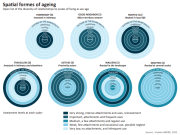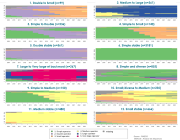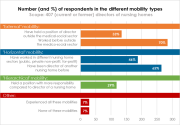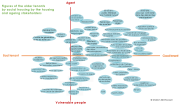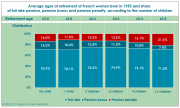
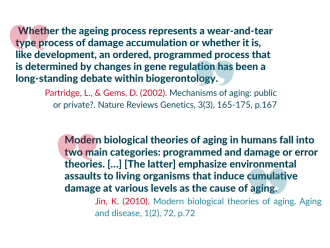
Clémence GUILLERMAIN, philosopher of science, explores the ‘thought style’ of research in the biology of ageing. Drawing on the scientific literature of the last twenty years, she analyses the semantics (concepts used, formulation of theories, etc.), the way in which it has been constructed, and how it has guided work in the field.
She shows that some of the discipline's key notions are inspired by lay representations of ageing, which tend to be negative. For example, the notion of wear and tear, recurrent in the literature although not unanimously accepted, refers to losses suffered by the ‘vital parts’ that make up cells and tissues. References to phenomena leading to an increase are less common. Another example is the notion of error, regular since the 1960s, which associates biological processes with certain values (fidelity, precision, perfection) from which they deviate, thus causing aging; it also assumes an intention on the part of the organism.
She also shows that semantics reflect a “pathologisation” of these biological processes, by borrowing from the vocabulary of diseases to describe them (deregulations, dysfunctions, damage, etc.), or by exploring direct parallels (e.g. ageing and cancers).
Finally, she notes that this research has sometimes been built around ideas, beliefs or theories about ageing, some of which date back to antiquity, such as the existence, initially intuitive, of a link between ageing and diet, still at the heart of many studies today.
Thus, the development of this field of research is unusual; its terms and themes derive in part from individual or collective representations of ageing, beyond the neutral observation of biological mechanisms. The result is a rather negative conception of the processes involved. This vision needs to be challenged to better account for their diversity, as well as the factors that induce more favorable ageing experiences than others.
Chercheuse post-doctorante à Nantes Université (Centre François Viète, UR 1161), elle a réalisé sa thèse au sein du laboratoire SPHERE, à l’Université Paris Cité (UMR 7219).
Références :
- Guillermain, C. (2025) Le vieillissement n’est pas une maladie. PUF. Coll. : Sciences dans la Cité.
- Guillermain, C. (2022). Is there a need for consensus in ageing biology? Biology and Philosophy 37, 49
- Gaille, M., Araneda, M., Dubost, C., Guillermain, C., et al. (2020). Conséquences éthiques et sociales de biomarqueurs prédictifs de la mort chez l’homme - La vieillesse et la mort, problématiques comportementales et sociétales. médecine/sciences, 36(12), 1199-1206.


